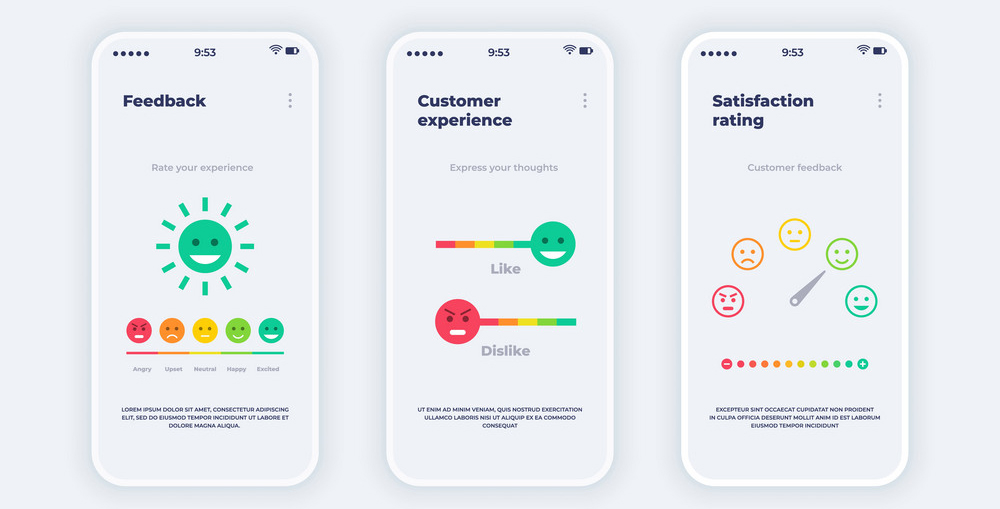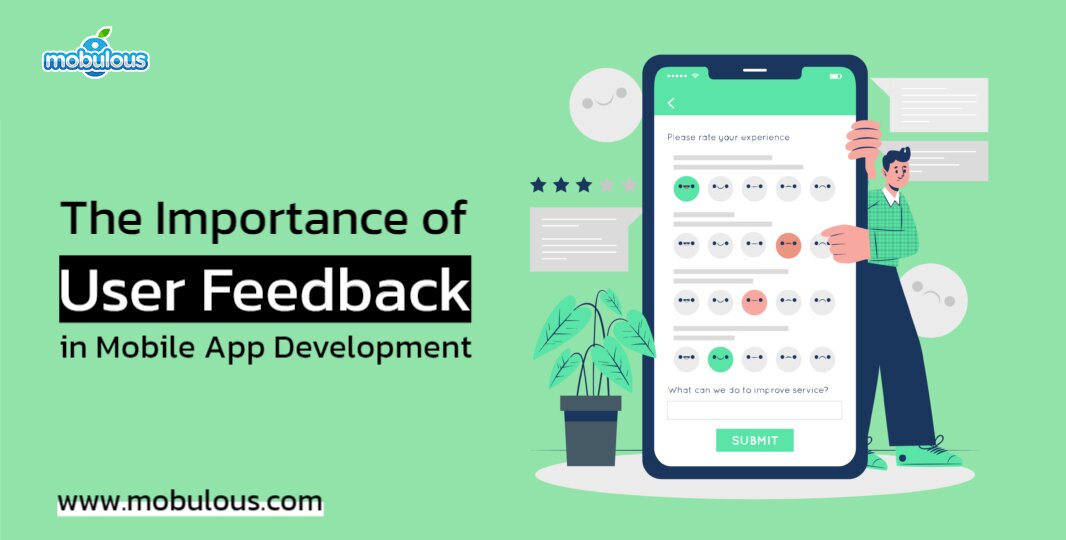Building a unique mobile app in the fast digital world one lives in today calls for an effort. So, how does one make their app stand out when millions of apps sit in any app store? The secret is held by one powerful tool: user feedback. Let’s dive into why user feedback is crucial in mobile app development and how it can lead to your app’s success.
Overview of Mobile App Development
Mobile app development is an ever-evolving field. Developers are constantly innovating to meet the growing demands of users. But with innovation comes the challenge of staying relevant and competitive. This is where user feedback becomes a game-changer. It acts as a direct line of communication between you and your users, helping you understand their needs, preferences, and pain points.
Read More About:
Android App Development Company
Why User Feedback Matters
Imagine launching a mobile app and then just sitting back, hoping for the best. That sounds risky. User feedback allows you to actively engage with your audience, listen to their concerns, and make informed decisions that can significantly improve your app. It’s about creating a product that truly resonates with your users and keeps them returning for more.
Understanding User Feedback
What is User Feedback?
User feedback is the information users provide about their experience with your app. This can include reviews, ratings, comments, and even behavioral data. There are two main types of user feedback:
- Direct feedback includes reviews, ratings, and surveys where users explicitly share their thoughts.
- Indirect feedback: This is gathered through analytics tools that track user behavior, such as how they navigate your app or where they drop off.
Sources of User Feedback
You can gather user feedback from various sources, including:
- App store reviews and ratings: Users can leave reviews and ratings directly in the app store, giving you a sense of their overall satisfaction.
- In-app surveys and feedback forms allow users to provide feedback while using your app, offering insights into their real-time experiences.
- Social media and online forums: Users often share their thoughts on social media or in forums, giving you additional perspectives on your app.
- Analytics tools: Platforms like Google Analytics or Firebase track user behavior, offering data-driven insights into how users interact with your app.
The Role of User Feedback in the Development Lifecycle
Initial Development and Prototyping
At the early stages of development, user feedback can be invaluable. By sharing a prototype or MVP (Minimum Viable Product) with a select group of users, you can gather insights into what features they love, what they find confusing, and what could be improved. This early feedback helps guide the development process, ensuring you’re building something users want.
Post-Launch Enhancements
Once your app is live, the work doesn’t stop. It’s just beginning. Continuous feedback from users allows you to make updates and improvements based on their experiences. This could involve fixing bugs, adding new features, or simplifying the user interface—all based on what your users tell you.
User-Centric Design and UI/UX Improvements
User feedback is a goldmine for enhancing your app’s UI/UX (User Interface and User Experience) By understanding how users interact with your app, you can make informed design decisions that lead to a more intuitive and enjoyable experience. For example, if users consistently struggle with a particular feature, you can redesign it to be more user-friendly.
Read More About Mobile App Development Lifecycle

The Main Benefits of Integrating User Feedback
Enhanced User Experience
One of the most significant benefits of user feedback is the ability to create a better user experience. When you listen to your users and make changes based on their suggestions, you build an app that aligns with their needs. This leads to higher satisfaction and, ultimately, better reviews and ratings.
Increased User Retention and Engagement
An app that evolves based on user feedback is more likely to retain users. When users see that their feedback is valued and implemented, they feel a sense of ownership and are likelier to stay engaged with your app. This can lead to increased usage, loyalty, and word-of-mouth promotion.
Competitive Advantage
In a crowded app market, being responsive to user feedback can set your app apart. By continuously improving your app based on user input, you can offer a product that meets and exceeds user expectations. This can help you build a loyal user base and stand out in the app store.
Cost Efficiency
Developing features that users don’t want or need can be costly. By focusing on user-validated features, you can avoid wasting time and resources on unnecessary development. This saves money and ensures that your app is more likely to succeed in the market.
Improved App Store Ratings and Reviews
When users feel heard and see that their feedback leads to positive changes, they are likelier to leave positive reviews and ratings. This, in turn, boosts your app’s visibility in the app store, attracting even more users.
Challenges in Gathering and Implementing User Feedback
Identifying Genuine Feedback
Not all feedback is created equal. Some users may leave biased or non-constructive comments. It’s important to filter through feedback to identify genuine insights that can help improve your app. Tools like AI and machine learning can assist in analyzing feedback trends and identifying valuable insights.
Balancing User Requests with Technical Feasibility
While it’s important to listen to users, not all requests may be feasible from a technical standpoint. It’s crucial to balance user desires with what is technically possible and prioritize feedback based on its impact and feasibility.
Managing Negative Feedback
Negative feedback is inevitable but doesn’t have to be a setback. By responding to criticism constructively and addressing user concerns, you can turn negative feedback into an opportunity for improvement. This enhances your app and shows users that you care about their experience.
Tools and Techniques for Collecting User Feedback
In-App Feedback Tools
There are numerous tools available that allow you to collect feedback directly from within your app. Examples include Upvoty, Apptentive, and UserVoice. These tools make it easy for users to share their thoughts without leaving your app, increasing the likelihood of receiving valuable feedback.
Analytics Platforms
Analytics tools like Google Analytics, Mixpanel, and Firebase provide data-driven insights into user behavior. By analyzing metrics such as session duration, bounce rates, and conversion paths, you can better understand how users interact with your app and identify areas for improvement.
Social Listening and Monitoring
Social media platforms and online forums are rich sources of user feedback. By actively monitoring these channels, you can gather insights into what users say about your app and identify trends that inform your development process.
A/B Testing
A/B testing allows you to experiment with different app versions to see which performs better. By testing changes based on user feedback, you can validate whether the changes lead to improved user satisfaction and engagement.

Best Practices for Leveraging User Feedback
Establishing a Feedback Loop
Creating a continuous feedback loop ensures that you always listen to your users and make improvements based on their input. This involves regularly gathering feedback, analyzing it, implementing changes, and seeking further feedback.
Engaging with Users
Building a community around your app encourages ongoing feedback and fosters a sense of belonging among users. Engage with users through social media, email newsletters, or in-app messages to keep the conversation going and show that you value their input.
Transparency with Users
Being transparent about your changes based on user feedback helps build trust with your audience. Let users know when you’ve implemented their suggestions and explain why specific requests may not be feasible. This openness can lead to stronger relationships and more loyal users.
Regular Updates and Iterations
Regularly updating your app based on user feedback shows you are committed to continuous improvement. By iterating on your app and making frequent updates, you can keep users engaged and ensure that your app remains relevant in a competitive market.
Also Read Our Latest Blog: Monetization Strategies for Your Mobile Apps
Conclusion
Ignoring user feedback in mobile app development can lead to disengaged users and declining app success. As frustration builds, users may abandon your app for competitors who listen. To prevent this, make user feedback a priority throughout development. By continuously gathering and acting on feedback, you can enhance user experience, boost retention, and ensure your app remains relevant and competitive in a crowded market.


